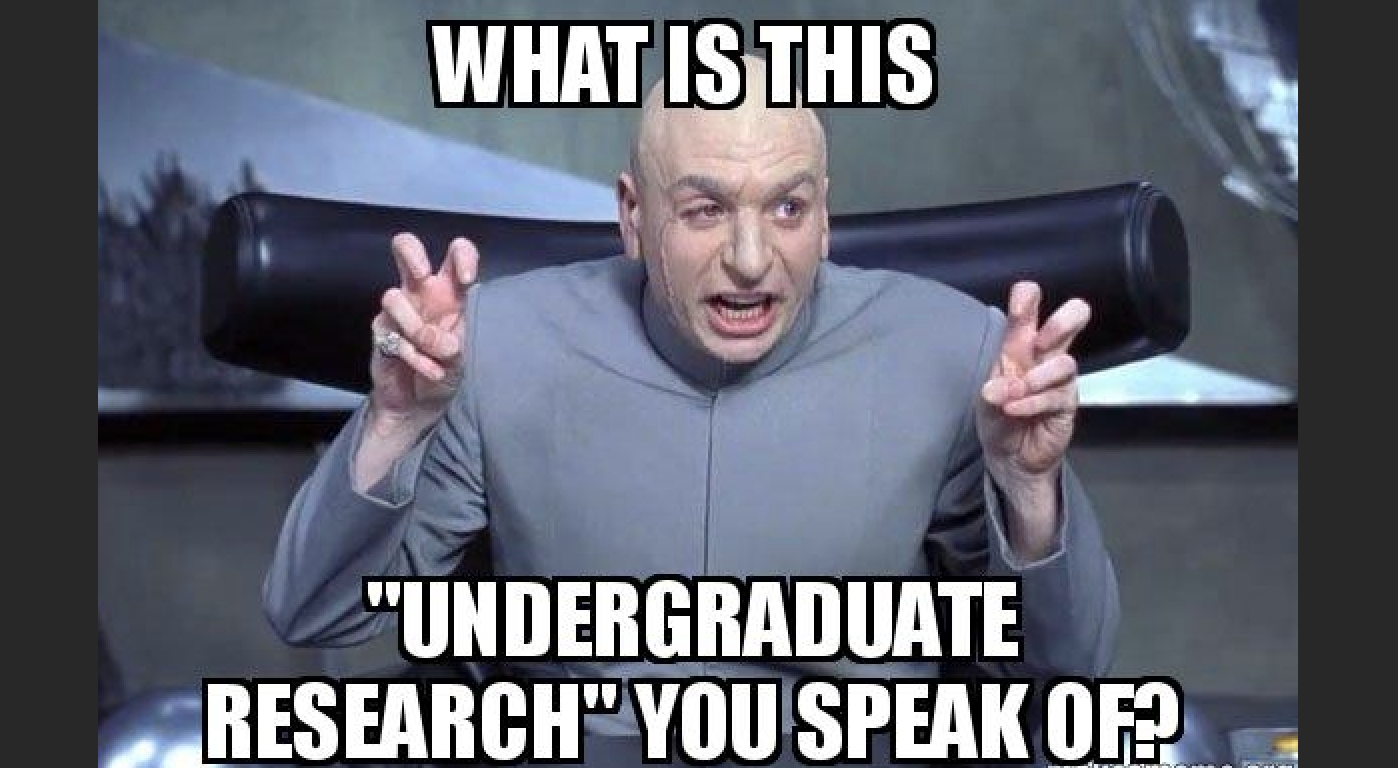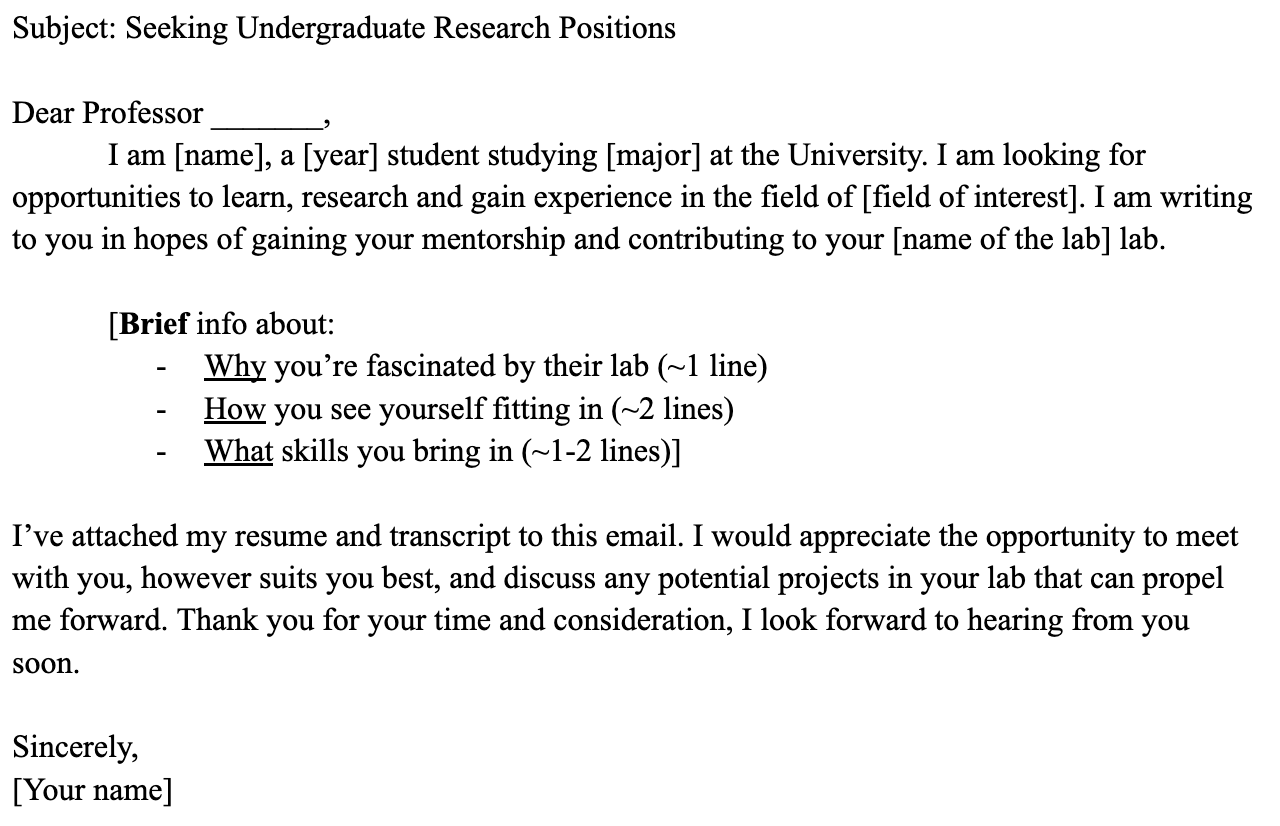How to get started with Undergraduate Research
Research has helped me grow and learn skills that I couldn't have learnt on my own or in any of my classes. That's why I urge everyone in college to give it a shot!

Research experience has unequivocally been the leading criterion for admission into grad school as well as entering the workforce. Getting research opportunities can sometimes be as exclusive as getting an internship position. Research is a great way to dip your feet into a field/sub-field of interest while growing your skillset. It also portrays you as a dedicated student who seeks opportunities outside of their comfort zone.
For me, research has been one of the most confusing, yet invigorating experiences of my life – I highly recommend participating in at least one research experience. Here's my little piece of advice on how you can get started with research in your college! To establish my credibility, I have held three research positions in college so far as a sophomore, two of which I am still part of. I also had a research position as a sophomore in high school, but I was extremely confused at the time, so I won't be drawing a lot of my advice from that experience, lol.
About me: My Background in Undergraduate Research
For context, I am studying Computer Science and Data Science with a minor in Neuroscience. I have focused my attention on seeking research positions in the BioTech industry since I find that best-suiting for my interests as of right now. To go a little more in depth about my two current research positions, here's an outline of both of them:
- Research on Parkinson's Disease (PD): My role in this research project is to assist my advisor, who's seeking a PhD, analyze data on PD patients so she can create wearable sensors that are appropriate and accurate for further research on solutions for the disease. I was tasked with creating Machine Learning models to classify PD patients into relevant groups (such as PD/nonPD, etc.), predict their UPDRS scores from available data, and assess the accuracy of the models.
- Research on Age-Related Macular Degeneration (AMD): My role in this research project is a bit more independent than the last one since I am leading this project. AMD causes its patients to develop a blindspot in their eye. I am tasked to find a VR solution for AMD patients that would help track their eye and remap the environment around them so they can perceive everything without the effects of the blind spot.
Ask these questions to yourself before you start searching
- What is my field of interest? What is my sub-field of interest? (saying computer science is not enough. List out some of the subfields - computer vision, AI, robotics, etc.)
- What domain(s) am I interested in? (Where do I want to apply my skills. Example, CS can be applied in Medicine, Aerospace, Public Health, Business, etc.)
- Do I want it to be extremely structured or do I want some independence? If I want it to be structured, are there any research programs/scholarships offered by the University? (usually they are a lot more meticulous than regular research)
- Have I researched enough? –– Research about as many research labs as you can to expose yourself to.
- Compare: What skills are required in a particular field v/s what skills do I bring to the table? What can I do to achieve most, if not all, of the skills required by research labs? (Ex. personal projects, online courses, etc.)
Connections are everything!
Although basic, this is the one tip that landed me the all three of the research positions I currently have. USE YOUR CONNECTIONS: upperclassmen, school's webpage on research, first year professors, student boards, student orgs (when they have professor panels), etc. Asking around about a professor who's doing research and having someone connect you to them personally can go a long way.
Another trick that helped me is creating a LinkedIn profile and seeing what my connections were involved with (this applies to more than just research). Reach out to them if you can't find information about what lab group they are part of. You can also reach out to them to ask questions about lab or request them to personally connect you with the professor.
Back story: How connections played a huge role for me
I got my first research position (it is not one of the two listed above) because one of my family friends, an upperclassmen, had previously worked with the professor. After getting the position, I found myself not as thrilled about their project as I thought I would be. However, I still tried my best to learn as much as I could.
In one of the emails, my advisor at the time listed that a Neuromodulation Symposium (that was closed off to PhD students and R&D Companies) needed volunteers. I immediately signed myself up as a mic-runner, mostly to try to understand what Neuromodulation even meant. I retained nothing from the presentations, but got chatting with one of the professors in charge of Institute of Engineering in Medicine at my university. They connected me with the professor I currently work under for PD research.
My lab advisor for the PD research also happened to be involved with the Medical Device Center (MDC) that I wanted to research with for the longest time! I emailed her to connect me with the Lab Supervisor at the MDC and that's how I got started with the AMD research.
This process took me my whole freshmen year to figure out but it was definitely worth it. Even though, I had to start with a project that I didn't necessarily enjoy, this process eventually got me the projects that I had always envisioned myself researching about.
Everyone knows someone; use that to your advantage. This most definitely plays out in the industry as well where connections can get you a long way. You simply have to show how genuine and dedicated you are to what you do/want to do!
Taking that first step
Whether or not you are able to get someone to refer you, cold emailing professors is always a great idea! I would highly suggest emailing as many professors as you possibly can if that's the case.
The first email where you introduce yourself is extremely important and NOT that deep at the same time. Here's a template that I usually follow:

Ensure that you keep it as brief as possible. The reason I said that it's not that deep earlier is because the professors are rarely ever going to read your email entirely. If they truly don't have time or space in their lab, they will ignore you. That's completely okay! Keeping it brief will only encourage them to consider it at the very least. This is where getting referred by someone that they know will come in clutch (connections!).
Dealing with Responses:
The worst thing that's going to happen is that they ignore you. Don't be discouraged!! It is not you or your skills that they are ignoring. Keep in mind that the professors are usually extremely busy themselves. Don't be shy to re-email them at a later time, maybe the start of next semester or before a break. If you still don't get a response, there are plenty of other professors that could use your help.
If you do manage to get a response and are able to set up a meeting with the professor, woohoo congrats!! But, you are not done yet!
The First Impression
If the professor if giving you time out of their schedule, they are probably already impressed by you and your resume. Make sure that you brush over your past experiences and know at least a bit about the research lab.
Ask yourself the following questions before your meeting with the professor. These are s0me of the questions that your professor might ask you; having an idea of what you want will help you sound more confident and prepared.
- What would be my end goal with this research? Do I want to be published? Do I want to be paid? Do I want to volunteer? Do I want to put it on my resume? If so, what type of research would look the best? Be as specific as possible.
- What kind of skills do I want to develop through this research. For someone in Computer Science it could be coding experience in Java or Python, but for someone in Biology, that could be understanding DNA sequencing and they could both be working for the same lab.
- How many hours per week can I give to this research?
- Do I want this research to be independent or lead by someone else?
- If I were leading a research, what would I like to want the topic to be? This will help you pitch in any new ideas that you may have/want to pursue under an advisor.
- What skills do I bring to the table?
Ask them questions! They also look for you to be as engaged as possible. Whether it be about them, their education background, or their past publications, asking relevant questions is key to sounding more passionate and dedicated. This would help you stand out as well as help you learn more about the research lab.
Last Thoughts
Once you start researching, be patient with yourself. Give yourself some time to assimilate and don't put too much pressure on yourself to do good at the very beginning. It is difficult to pick up any research in the middle. Make sure that you are constantly communicating your struggles with your Advisor – they definitely don't expect you to know everything.
It is important to note that you probably own't be satisfied with the first research opportunity that you get. Don't put all your eggs in one basket and keep trying to look into other labs if that's the case. Every research lab is structured differently and you will find something that best suits the way you learn. I have seen multiple people give up wanting to do research because of one bas experience. Don't do that!! You can always just try researching at a different lab.
These were all the points that I wish I knew before I started looking for research positions. I hope this helped!


